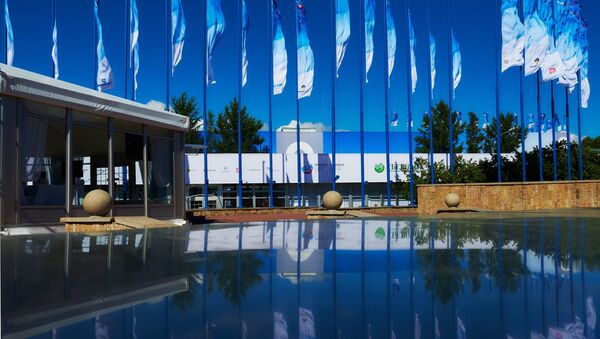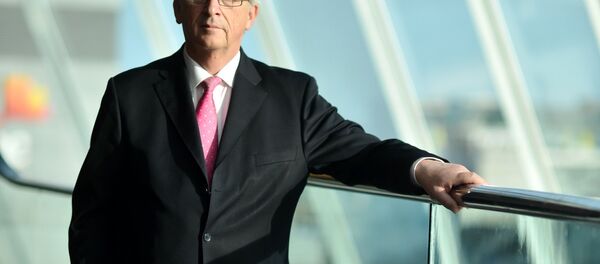However the outlet further notes that the President of the Commission would not be the first European leader “to brave the two-year cooling.”
Francois Hollande, Angela Merkel and French Foreign Minister Jean-Marc Ayrault, it says, have already visited Russia since the reunification with Crimea in March 2014 and the outbreak of the conflict in Eastern Ukraine.
However the trip will be Juncker's first as Europe's chief executive.
The newspaper notes that the visit signifies a clear thaw in relations between Russia and the EU and draws attention to the timing of the visit.
The author suggests that the EU is “repaying a debt of courtesy” five days after the Kremlin’s decision to pardon Ukrainian Nadezhda Savchenko. In addition, he suggests that Jean-Claude Juncker is trying to speed up the diplomatic process as the bloc weighs renewing sanctions on Russia at the end of June.
However, it further suggests that the sanctions will be extended, most likely for six months, in the energy, financial and defense spheres.
A similar view was echoed earlier by Reuters, which suggested that the “intensifying of high-level contacts with Russia signals that the EU may soften its policy in the second half of the year.”
Reuters suggests that the EU is trying to maintain unity on the sanctions, which have been questioned by Hungary, Greece and Italy. The United States insists they must remain in place until Russia fulfils its part of the Minsk peace plan.
Meanwhile, an article in Politico magazine quotes some diplomatic sources as saying that there is fear from the US, some European countries, mostly Eastern European, that “Juncker’s visit will strengthen Russian President Vladimir Putin’s position right before a crucial decision on renewing economic sanctions against Moscow.”
According to Le Figaro, for the Russian leadership, the upcoming visit could serve as a confirmation of the desire of the Europeans to continue dialogue with Russia, even on the deepest discrepancies and cites Juncker as “acknowledging that Russia and EU can no longer continue a dialogue in the dark.”




